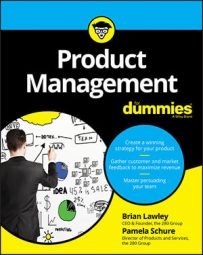If your experience is on the non-technical side, at times you need to focus on the nitty gritty technical aspects of your product. Here's a short inventory of useful skills for product managers to maintain:
- Communication. Communication is a two-way street. You should feel as comfortable listening as talking and the other way around if appropriate. What communication skills you need changes dramatically depending on the context. Forget one size fits all. Tailor your communication to the person, the function, and the circumstance. Your own needs take a back seat to the needs of the situation in front of you. It may feel like you are a communication chameleon; you need to be deliberately different based on your audience. Learn to use those communication skills that are not currently part of your repertoire.
- Empathy. Empathy is the skill of putting yourself in another's shoes. Practice challenging every one of your own assumptions about what is true as you focus on understanding another point of view. This skill is critical in product development and extremely useful in balancing differences in opinions.
- Analysis. Good product managers learn to enjoy sitting in front of an extra-large monitor and playing with a huge spreadsheet of data. Historical sales figures, adoption rates, click-through rates, total market sales, and bar charts galore help tell a coherent numerical story which supports your product vision. Remember that supporting your point of view with cold hard facts is often the difference between getting the organization to buy into your plan and losing the argument. Learn to translate numbers into information using tables, charts, percentages, and possibly even statistics.
- Influence. Influence is the higher level practice of communication, practical psychology, and using cold hard facts delivered in a kind manner. Sounds easy, doesn't it? Seriously, the skill of influencing others is a keystone of product management success. Take a class in this important skill and then practice, practice, practice. Break down each interaction until you can build up your influencing skills to a high level.
- Forward thinking. Product managers plan for the upcoming: while standing in the present, they believe in the future. Product managers know what will happen when their product becomes available. Today's world won't exist anymore in that future. So, your thinking should be focused on the natural outcome of today's trends at another point in time. Your skill in interpreting and integrating the complex interaction of many factors is part of your success as a product manager. To start practicing this skill, imagine yourself at a past point in time. What was known then and what was the market outcome of different technologies? What didn't happen? You are the futurist for your product, market and technology.
- Forward driving. All the skills in this list mean nothing unless projects are driven to completion. Create your vision, have your team buy into that future vision and then set challenging goals for them to deliver to. Keep your team motivated along the way and you will have become the product leader that makes a difference.

